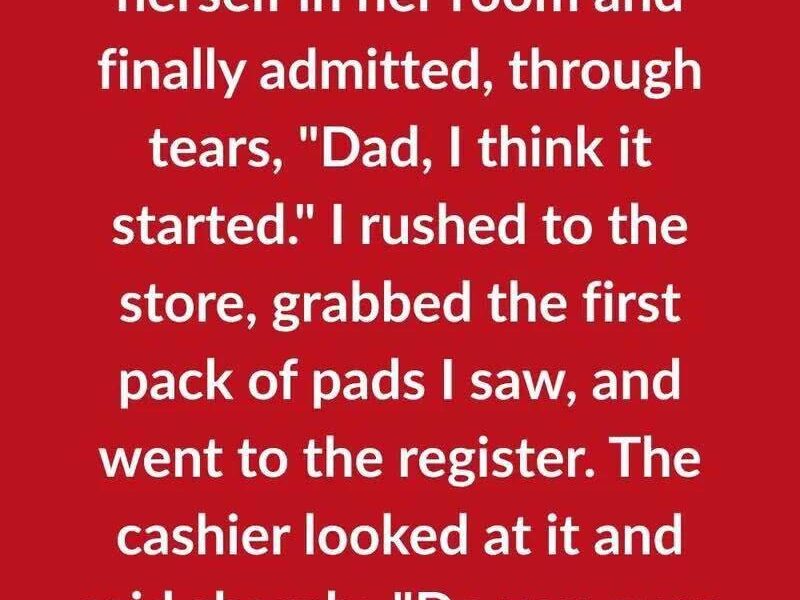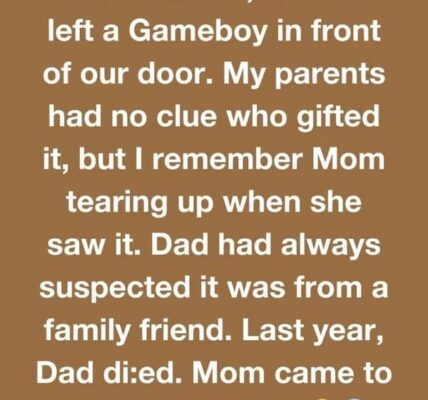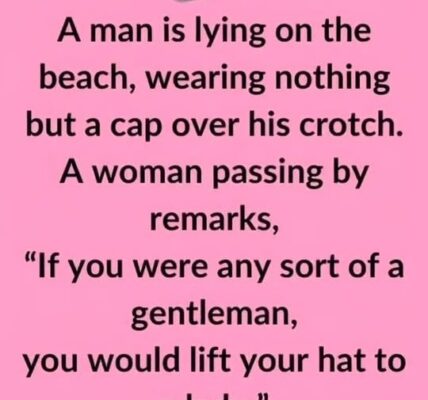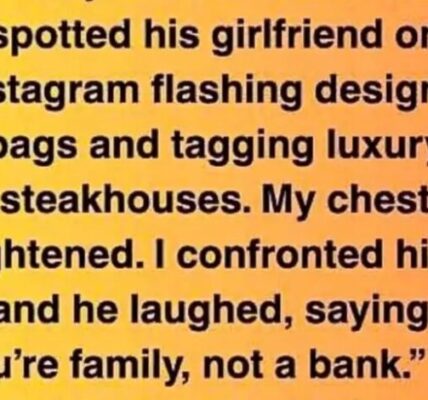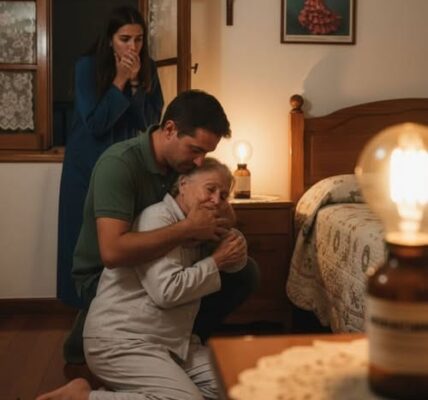My daughter locked herself in her room and finally admitted, through tears, “Dad, I think it started.”
I rushed to the store, grabbed the first pack of pads I saw, and went to the register.
The cashier looked at it and said sharply, “Do you even know what you’re buying?”
Her tone cut through me. It wasn’t curiosity; it was judgment. I was standing there, sweaty and panicked, clutching the bright pink package like it was the only thing keeping my world from falling apart.
I stammered, “My daughter… it’s her first time. I don’t know what else to do.”
The cashier’s eyes softened, almost instantly. Her name tag read “Maritza.” She took a deep breath and stepped out from behind the counter. She showed me what size and type might be better for a first period and explained the differences like a patient teacher. Then she asked, “Do you have a heating pad? Some chocolate? She’ll need comfort more than anything.”
I almost broke down in the middle of that aisle. No one had ever taught me what to do for something like this. My wife, Mira, had passed away three years ago. Ever since, it had been just me and my daughter, Isla. She was ten back then; now thirteen and trying so hard to grow up without a mom.
When I got home, Isla was curled up on her bed, sheets bunched under her, her face pale. I knocked softly, holding the bag like it was a peace offering. She let me in, eyes rimmed red.
“I got these,” I said, awkwardly pulling out the pads. “And chocolate. And a heating pad. Maritza at the store said they might help.
Her mouth wobbled into a small smile. “You talked to someone about it?” she asked, almost disbelieving.
“Yeah,” I said, sitting on the edge of the bed. “She was kind.”
That night, we sat together watching old cartoons, Isla leaning her head on my shoulder, a heating pad pressed to her stomach. She told me she was scared of going to school, scared everyone would know. I promised her no one would. But deep down, I worried about how much I didn’t know.
The next morning, I called Isla’s school nurse, Mrs. Donahue. She answered kindly, explaining what supplies Isla could keep in her locker and reassured me they’d help if she needed. I was grateful, but embarrassed too, because it felt like I should already know these things.
A few days later, I got called into work for an unexpected shift. I left Isla with my older sister, Corinne. When I returned, Isla was in tears again. Corinne had scolded her for “acting dramatic” about cramps. She told Isla that women have been “dealing with this forever” and she should “toughen up.”
That night, Isla looked at me with eyes full of doubt and said, “Maybe I am being dramatic, Dad.”
My chest hurt. I pulled her close and said, “No, Isla. You’re allowed to hurt. You’re allowed to need help.”
It took time to rebuild her trust after that. She started pulling away from Corinne, refusing to stay with her when I had late shifts. Corinne was furious, accusing me of spoiling Isla. But I couldn’t ignore how Isla’s face went tight with fear whenever I mentioned her aunt.
A month later, there was a school field trip. Isla called me, voice shaking, from the bathroom. She’d bled through her pants and was hiding in a stall. My stomach dropped. I told my boss I had an emergency and sped to the school.
In the car ride home, she asked me in a tiny voice, “Why do I have to go through this? It’s so embarrassing.”
I searched for the right words. “Because your body is strong, Isla. It means you’re healthy. But it doesn’t mean you have to be alone.”
That night, I ordered books on puberty and periods written for girls and dads. We read them together at the kitchen table, giggling at the cartoon diagrams. It became a new kind of bonding, like building a secret language.
One Saturday morning, I woke up to find Isla gone. Panic surged through me, but then I heard her laughter outside. She was teaching our neighbor’s younger daughter, Leena, how to make friendship bracelets. Leena’s mother, Yvette, waved at me from her porch. We’d always been polite but distant, caught up in our own struggles.
As I watched Isla patiently untangle Leena’s knotty threads, something clicked. She was kind. She was learning empathy, even as she wrestled her own fears.
The next week, Isla told me Yvette invited her for a “girls’ lunch” with Leena. I hesitated—was I ready to let her go without me? But I said yes. When Isla came back, she was glowing. They’d gone shopping for hair ties and cute socks, and Yvette had gently talked to her about periods. Isla said, “She told me stories about when she was my age. It made me feel… normal.”
One evening, Isla fell asleep on the couch next to me, exhausted from cramps. I looked at her peaceful face and realized how much she’d changed in just a few months. But I’d changed too. I wasn’t just fumbling my way through anymore. I was learning.
The twist came when Maritza, the cashier, called me out of the blue. I’d left my number at the pharmacy when I ordered more heating pads, and she’d found it. She said, “I hope it’s not weird, but would you and Isla like to come to a community event we’re hosting for dads raising daughters?”
I was stunned. It turned out Maritza ran a small support group for single dads who wanted to learn about parenting girls. That Saturday, I found myself sitting in a circle with five other dads. We shared stories about ruined white jeans, middle-of-the-night grocery runs, and how hard it was to know when to step in and when to give space.
One dad, a guy named Bartolo, said something I’ll never forget: “Our girls don’t need perfect dads. They need dads who don’t give up.”
Those words stuck with me like a compass.
The weeks passed. Isla’s confidence grew. She started helping other girls at school who got their first period. She even convinced the principal to put free pads in the girls’ bathroom. When I asked how she did it, she shrugged and said, “I just asked. And I told him what it felt like to not have them.”
That’s when it hit me: Isla was braver than I ever was at her age.
One afternoon, Yvette invited me over for coffee. We’d both been tiptoeing around our feelings. She told me she’d been watching me with Isla, how I listened and tried, even when I looked lost. She said it gave her hope that good men were still out there. I admitted I’d always admired her patience with Leena. Our conversation turned to laughter, stories of parenting fails, and dreams for our kids’ futures.
A few weeks later, Isla had another bad day at school. A boy in her class mocked her for carrying a pad in her backpack. She came home furious, shouting that she wanted to switch schools. I was angry too—angry at the boy, the teachers who hadn’t stopped it, and the world for making her feel ashamed of something natural.
But I took a deep breath and asked, “What do you think we can do to make it better?” She thought for a long time, then decided to talk to her teacher and ask for a class discussion about periods and respect. I offered to come with her, but she wanted to do it alone.
The next day, she stood in front of her class and spoke. I later heard from Mrs. Donahue that Isla’s words had stunned everyone. She told them what it felt like to be humiliated for something she couldn’t control, and how it hurt more than any cramps. Some kids apologized. The boy’s mom called me, embarrassed, and said she was sorry too.
That night, Isla told me she felt powerful for the first time. I hugged her so tight she squeaked.
As summer approached, Isla got invited to her first sleepover. She was terrified about what might happen if she started her period at her friend’s house. Together, we packed a little kit with pads, pain relievers, and a note with my number if she needed me. She never called, and came back the next day beaming. She’d been fine. She’d managed on her own.
One Saturday morning, I found a small card on my pillow. It was from Isla. She’d drawn a picture of the two of us holding hands, standing next to a giant chocolate bar. The note read: “Thanks for always being there, Dad. You’re the best mom-dad ever.”
I cried harder than I had since Mira’s funeral.
That same afternoon, Yvette invited me and Isla over for dinner with her and Leena. As the girls played in the backyard, Yvette took my hand. She said, “I’ve seen how you show up for Isla. I’d like to see if there’s something more here… if you want that too.”
I did. So much.
Over the months, we grew closer. Our daughters became inseparable. Our lives blended naturally, not in a rush but like two rivers meeting. One night, as we sat on the porch watching fireflies, Yvette whispered, “I think Mira would be proud of you.” I believed her.
A year later, Isla stood at her school’s assembly to talk about period education and how every school should offer supplies for girls who can’t afford them. She started a small charity with Yvette and me helping behind the scenes. We collected pads and tampons to donate to local schools. Isla’s idea grew into a community project. She was twelve, and she’d already changed lives.
As I watched her on stage, strong and fearless, I realized something: this journey that began with a desperate dash to the store had become the greatest lesson of my life.
I learned that real love isn’t about knowing everything. It’s about listening. It’s about showing up, every single time, even when it’s uncomfortable. It’s about turning awkward moments into trust, and mistakes into growth.
Isla taught me how to be the father she needed, and in return, I helped her see how powerful she could be.
To every parent reading this: don’t fear what you don’t understand. Lean into it. Ask questions. Show your child you care enough to learn. Because every time you choose to be there—really be there—you give them the confidence to face anything.
If you found a piece of yourself in this story, please like and share it. You never know who might need to hear they’re not alone.
